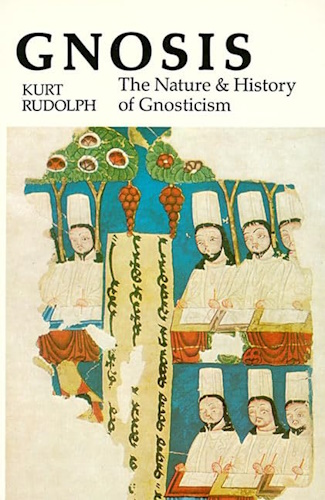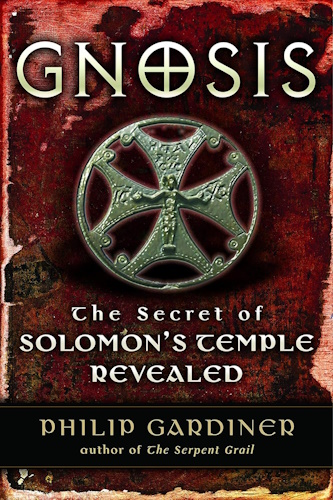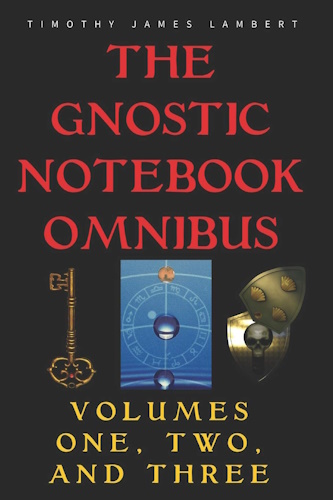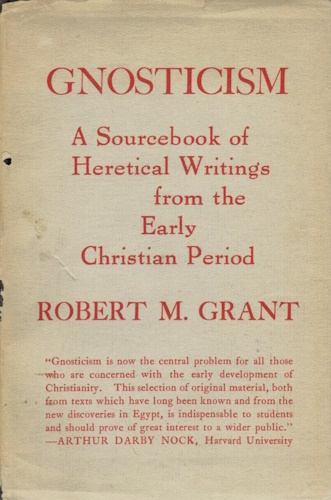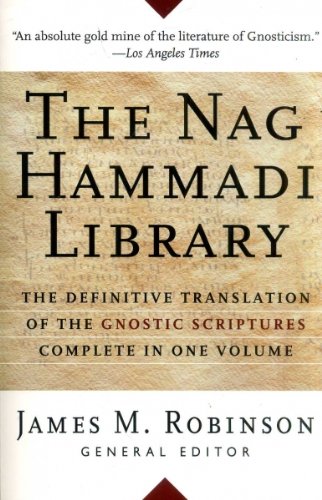
The Acts of Peter and the Twelve Apostles
translated by Douglas M. Parrott and R. McL.Wilson
[...] which [...] purpose [... after ...] us [...] apostles [...]. We sailed [...] of the body. Others were not anxious in their hearts. And in our hearts, we were united. We agreed to fulfill the ministry to which the Lord appointed us. And we made a covenant with each other.
We went down to the sea at an opportune moment, which came to us from the Lord. We found a ship moored at the shore ready to embark, and we spoke with the sailors of the ship about our coming aboard with them. They showed great kindliness toward us as was ordained by the Lord. And after we had embarked, we sailed a day and a night. After that, a wind came up behind the ship and brought us to a small city in the midst of the sea.
And I, Peter, inquired about the name of this city from residents who were standing on the dock. A man among them answered, saying, "The name of this city is Habitation, that is, Foundation [...] endurance." And the leader among them holding the palm branch at the edge of the dock. And after we had gone ashore with the baggage, I went into the city, to seek advice about lodging.
A man came out wearing a cloth bound around his waist, and a gold belt girded it. Also a napkin was tied over his chest, extending over his shoulders and covering his head and his hands.
I was staring at the man, because he was beautiful in his form and stature. There were four parts of his body that I saw: the soles of his feet and a part of his chest and the palms of his hands and his visage. These things I was able to see. A book cover like (those of) my books was in his left hand. A staff of styrax wood was in his right hand. His voice was resounding as he slowly spoke, crying out in the city, "Pearlsl Pearlsl"
I, indeed, thought he was a man of that city. I said to him, "My brother and my friend!" He answered me, then, saying, "Rightly did you say, 'My brother and my friend.' What is it you seek from me?" I said to him, "I ask you about lodging for me and the brothers also, because we are strangers here." He said to me, "For this reason have I myself just said, 'My brother and my friend,' because I also am a fellow stranger like you."
And having said these things, he cried out, "Pearls! Pearls!" The rich men of that city heard his voice. They came out of their hidden storerooms. And some were looking out from the storerooms of their houses. Others looked out from their upper windows. And they did not see (that they could gain) anything from him, because there was no pouch on his back nor bundle inside his cloth and napkin. And because of their disdain they did not even acknowledge him. He, for his part, did not reveal himself to them. They returned to their storerooms, saying, "This man is mocking us."
And the poor of that city heard his voice, and they came to the man who sells this pearl. They said, "Please take the trouble to show us the pearl so that we may, then, see it with our (own) eyes. For we are the poor. And we do not have this [...] price to pay for it. But show us that we might say to our friends that we saw a pearl with our (own) eyes." He answered, saying to them, "If it is possible, come to my city, so that I may not only show it before your (very) eyes, but give it to you for nothing."
And indeed they, the poor of that city, heard and said, "Since we are beggars, we surely know that a man does not give a pearl to a beggar, but (it is) bread and money that is usually received. Now then, the kindness which we want to receive from you (is) that you show us the pearl before our eyes. And we will say to our friends proudly that we saw a pearl with our (own) eyes" - because it is not found among the poor, especially such beggars (as these). He answered (and) said to them, "If it is possible, you yourselves come to my city, so that I may not only show you it, but give it to you for nothing." The poor and the beggars rejoiced because of the man who gives for nothing.
The men asked Peter about the hardships. Peter answered and told those things that he had heard about the hardships of the way. Because they are interpreters of the hardships in their ministry.
He said to the man who sells this pearl, "I want to know your name and the hardships of the way to your city because we are strangers and servants of God. It is necessary for us to spread the word of God in every city harmoniously." He answered and said, "If you seek my name, Lithargoel is my name, the interpretation of which is, the light, gazelle-like stone.
"And also (concerning) the road to the city, which you asked me about, I will tell you about it. No man is able to go on that road, except one who has forsaken everything that he has and has fasted daily from stage to stage. For many are the robbers and wild beasts on that road. The one who carries bread with him on the road, the black dogs kill because of the bread. The one who carries a costly garment of the world with him, the robbers kill because of the garment. The one who carries water with him, the wolves kill because of the water, since they were thirsty for it. The one who is anxious about meat and green vegetables, the lions eat because of the meat. If he evades the lions, the bulls devour him because of the green vegetables."
When he had said these things to me, I sighed within myself, saying, "Great hardships are on the road! If only Jesus would give us power to walk it!" He looked at me since my face was sad, and I sighed. He said to me, "Why do you sigh, if you, indeed, know this name "Jesus" and believe him? He is a great power for giving strength. For I too believe in the Father who sent him."
I replied, asking him, "What is the name of the place to which you go, your city?" He said to me, "This is the name of my city, 'Nine Gates.' Let us praise God as we are mindful that the tenth is the head." After this I went away from him in peace.
As I was about to go and call my friends, I saw waves and large high walls surrounding the bounds of the city. I marveled at the great things I saw. I saw an old man sitting and I asked him if the name of the city was really Habitation. He [...], "Habitation [...]." He said to me, "You speak truly, for we inhabit here because we endure."
I responded, saying, "Justly [...] have men named it [...], because (by) everyone who endures his trials, cities are inhabited, and a precious kingdom comes from them, because they endure in the midst of the apostasies and the difficulties of the storms. So that in this way, the city of everyone who endures the burden of his yoke of faith will be inhabited, and he will be included in the kingdom of heaven."
I hurried and went and called my friends so that we might go to the city that he, Lithargoel, appointed for us. In a bond of faith we forsook everything as he had said (to do). We evaded the robbers, because they did not find their garments with us. We evaded the wolves, because they did not find the water with us for which they thirsted. We evaded the lions, because they did not find the desire for meat with us. We evaded the bulls [...] they did not find green vegetables.
A great joy came upon us and a peaceful carefreeness like that of our Lord. We rested ourselves in front of the gate, and we talked with each other about that which is not a distraction of this world. Rather we continued in contemplation of the faith.
As we discussed the robbers on the road, whom we evaded, behold Lithargoel, having changed, came out to us. He had the appearance of a physician, since an unguent box was under his arm, and a young disciple was following him carrying a pouch full of medicine. We did not recognize him.
Peter responded and said to him, "We want you to do us a favor, because we are strangers, and take us to the house of Lithargoel before evening comes." He said, "In uprightness of heart I will show it to you. But I am amazed at how you knew this good man. For he does not reveal himself to every man, because he himself is the son of a great king. Rest yourselves a little so that I may go and heal this man and come (back)." He hurried and came (back) quickly.
He said to Peter, "Peter!" And Peter was frightened, for how did he know that his name was Peter? Peter responded to the Savior, "How do you know me, for you called my name?" Lithargoel answered, "I want to ask you who gave the name Peter to you?" He said to him, "It was Jesus Christ, the son of the living God. He gave this name to me." He answered and said, "It is I! Recognize me, Peter." He loosened the garment, which clothed him - the one into which he had changed himself because of us - revealing to us in truth that it was he.
We prostrated ourselves on the ground and worshipped him. We comprised eleven disciples. He stretched forth his hand and caused us to stand. We spoke with him humbly. Our heads were bowed down in unworthiness as we said, "What you wish we will do. But give us power to do what you wish at all times."
He gave them the unguent box and the pouch that was in the hand of the young disciple. He commanded them like this, saying, "Go into the city from which you came, which is called Habitation. Continue in endurance as you teach all those who have believed in my name, because I have endured in hardships of the faith. I will give you your reward. To the poor of that city give what they need in order to live until I give them what is better, which I told you that I will give you for nothing."
Peter answered and said to him, "Lord, you have taught us to forsake the world and everything in it. We have renounced them for your sake. What we are concerned about (now) is the food for a single day. Where will we be able to find the needs that you ask us to provide for the poor?"
The Lord answered and said, "O Peter, it was necessary that you understand the parable that I told you! Do you not understand that my name, which you teach, surpasses all riches, and the wisdom of God surpasses gold, and silver and precious stone(s)?"
He gave them the pouch of medicine and said, "Heal all the sick of the city who believe in my name." Peter was afraid to reply to him for the second time. He signaled to the one who was beside him, who was John: "You talk this time." John answered and said, "Lord, before you we are afraid to say many words. But it is you who asks us to practice this skill. We have not been taught to be physicians. How then will we know how to heal bodies as you have told us?"
He answered them, "Rightly have you spoken, John, for I know that the physicians of this world heal what belongs to the world. The physicians of souls, however, heal the heart. Heal the bodies first, therefore, so that through the real powers of healing for their bodies, without medicine of the world, they may believe in you, that you have power to heal the illnesses of the heart also.
"The rich men of the city, however, those who did not see fit even to acknowledge me, but who reveled in their wealth and pride - with such as these, therefore, do not dine in their houses nor be friends with them, lest their partiality influence you. For many in the churches have shown partiality to the rich, because they also are sinful, and they give occasion for others to sin. But judge them with uprightness, so that your ministry may be glorified, and that my name also, may be glorified in the churches." The disciples answered and said, "Yes, truly this is what is fitting to do."
They prostrated themselves on the ground and worshipped him. He caused them to stand and departed from them in peace. Amen.
The Acts of Peter and the Twelve Apostles
Selection made from James M. Robinson, ed., The Nag Hammadi Library, revised edition.
HarperCollins, San Francisco, 1990.
![]()
![]()
-
Urantia Book, 44:0.11 - The Celestial Artisans
Never in your long ascendancy will you lose the power to recognize your associates of former existences. Always, as you ascend inward in the scale of life, will you retain the ability to recognize and fraternize with the fellow beings of your previous and lower levels of experience. Each new translation or resurrection will add one more group of spirit beings to your vision range without in the least depriving you of the ability to recognize your friends and fellows of former estates.
-
Princess Bride 1987 Wallace Shawn (Vizzini) and Mandy Patinkin (Inigo Montoya)
Vizzini: HE DIDN'T FALL? INCONCEIVABLE.
Inigo Montoya: You keep using that word. I do not think it means what you think it means. -
Urantia Book, 117:4.14 - The Finite God
And here is mystery: The more closely man approaches God through love, the greater the reality -- actuality -- of that man. The more man withdraws from God, the more nearly he approaches nonreality -- cessation of existence. When man consecrates his will to the doing of the Father's will, when man gives God all that he has, then does God make that man more than he is.
-
Urantia Book, 167:7.4 - The Talk About Angels
"And do you not remember that I said to you once before that, if you had your spiritual eyes anointed, you would then see the heavens opened and behold the angels of God ascending and descending? It is by the ministry of the angels that one world may be kept in touch with other worlds, for have I not repeatedly told you that I have other sheep not of this fold?"
-
Urantia Book, Foreword - 0:12.12 - The Trinities
But we know that there dwells within the human mind a fragment of God, and that there sojourns with the human soul the Spirit of Truth; and we further know that these spirit forces conspire to enable material man to grasp the reality of spiritual values and to comprehend the philosophy of universe meanings. But even more certainly we know that these spirits of the Divine Presence are able to assist man in the spiritual appropriation of all truth contributory to the enhancement of the ever-progressing reality of personal religious experience—God-consciousness.
-
Urantia Book, 1:4.3 - The Mystery Of God
When you are through down here, when your course has been run in temporary form on earth, when your trial trip in the flesh is finished, when the dust that composes the mortal tabernacle "returns to the earth whence it came"; then, it is revealed, the indwelling "Spirit shall return to God who gave it." There sojourns within each moral being of this planet a fragment of God, a part and parcel of divinity. It is not yet yours by right of possession, but it is designedly intended to be one with you if you survive the mortal existence.
-
Urantia Book, 1:4.1 - The Mystery Of God
And the greatest of all the unfathomable mysteries of God is the phenomenon of the divine indwelling of mortal minds. The manner in which the Universal Father sojourns with the creatures of time is the most profound of all universe mysteries; the divine presence in the mind of man is the mystery of mysteries.
-
Urantia Book, 1:4.6 - The Mystery Of God
To every spirit being and to every mortal creature in every sphere and on every world of the universe of universes, the Universal Father reveals all of his gracious and divine self that can be discerned or comprehended by such spirit beings and by such mortal creatures. God is no respecter of persons, either spiritual or material. The divine presence which any child of the universe enjoys at any given moment is limited only by the capacity of such a creature to receive and to discern the spirit actualities of the supermaterial world.
-
Urantia Book, 11:0.1 - The Eternal Isle Of Paradise
Paradise is the eternal center of the universe of universes and the abiding place of the Universal Father, the Eternal Son, the Infinite Spirit, and their divine co-ordinates and associates. This central Isle is the most gigantic organized body of cosmic reality in all the master universe. Paradise is a material sphere as well as a spiritual abode. All of the intelligent creation of the Universal Father is domiciled on material abodes; hence must the absolute controlling center also be material, literal. And again it should be reiterated that spirit things and spiritual beings are real.
-
Urantia Book, 50:6.4 - Planetary Culture
Culture presupposes quality of mind; culture cannot be enhanced unless mind is elevated. Superior intellect will seek a noble culture and find some way to attain such a goal. Inferior minds will spurn the highest culture even when presented to them ready-made.
-
Urantia Book, 54:1.6 - True And False Liberty
True liberty is the associate of genuine self-respect; false liberty is the consort of self-admiration. True liberty is the fruit of self-control; false liberty, the assumption of self-assertion. Self-control leads to altruistic service; self-admiration tends towards the exploitation of others for the selfish aggrandizement of such a mistaken individual as is willing to sacrifice righteous attainment for the sake of possessing unjust power over his fellow beings.
-
Urantia Book, 54:1.9 - True And False Liberty
How dare the self-willed creature encroach upon the rights of his fellows in the name of personal liberty when the Supreme Rulers of the universe stand back in merciful respect for these prerogatives of will and potentials of personality! No being, in the exercise of his supposed personal liberty, has a right to deprive any other being of those privileges of existence conferred by the Creators and duly respected by all their loyal associates, subordinates, and subjects.
-
Urantia Book, 54:1.8 - True And False Liberty
There is no error greater than that species of self-deception which leads intelligent beings to crave the exercise of power over other beings for the purpose of depriving these persons of their natural liberties. The golden rule of human fairness cries out against all such fraud, unfairness, selfishness, and unrighteousness.


